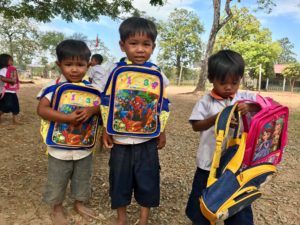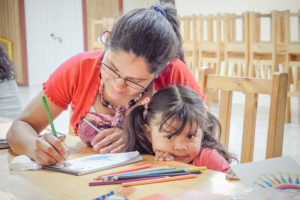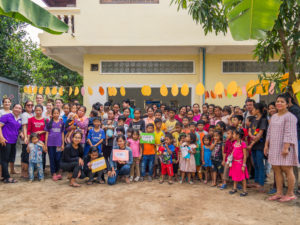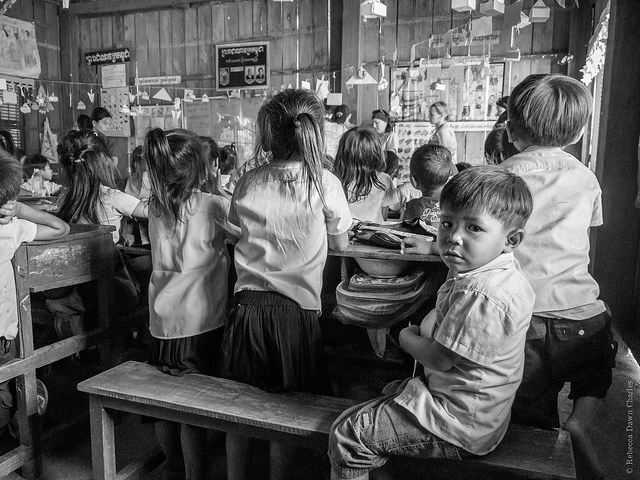“Kindness in words creates confidence. Kindness in thinking creates profoundness. Kindness in giving creates love.” – Lao Tzu
.
Culture of Generosity
The concept of generosity lives within a broader context of charity, love, and hospitality. An initiative called The Science of Generosity, defines it as:
“A basic, personal, moral orientation to life that involves both attitude and action…is not a random idea or haphazard behavior, and is not only good expressed but also certain vices rejected (i.e. selfishness, greed, fear, meanness)…[Generosity, is giving] money, possessions, time, attention, aid, encouragement, emotional availability, etc…and like all of the virtues, is in people’s genuine enlightened self-interest to learn and practice.”
Generosity is also in part a practice of recognizing our own inner abundance. It is seeing the gifts we each have that no one else does, and then finding sustainable ways of sharing them with others. This is how we each find a sense of unique purpose: a way of feeling connected to something beyond our own individual survival. As the complex humans that we are, we can use our cerebral cortices as a means of transmitting ourselves beyond the here and now of adapting and surviving into a purposeful realm of understanding life outside ourselves, our needs, or our basic mammalian drives. It moves us collectively higher up Maslow’s Hierarchy, into our greater potential.
Generous people tend to receive back goods that are even more valuable than those they gave, including happiness, health, a sense of purpose in life, and personal growth. Giving money, volunteering, being relationally generous (such as a warm neighbor or friend), and personally valuing the importance of becoming a more generous person are all significantly correlated with greater satisfaction and physical health, a stronger sense of meaning in life, avoidance of symptoms of depression, and a greater interest in personal development (*for a complete list of the benefits, please scroll to the bottom of this post).
Interestingly, giving to others strictly for the sake of personal gain will not necessarily produce these benefits. A world dominated by contract or economic exchange embodies conditional care as opposed to intentional altruistic motivations. Generosity, in short, is a lifestyle rather than a giving quota. Practicing it creates a deeper, richer, more complex kind of human happiness that material or financial goods alone cannot satisfy. It is an altruistic practice that is not built on single acts alone, but rather repeated behaviors that involve recurrent intention and attention. We learn generosity by giving with a conscious awareness of why we are doing it.
Patricia Herzog and Heather Price write about the three major forms of American generosity: volunteering, giving money, and taking political action, as well as the dichotomy that exists between perception and actuality in terms of resources. Generally speaking, we tend to perceive ourselves as constantly busy and yet research shows how we spend hours in the day on activities that disengage us – such as TV or social media – and that contribute to poor time management. In essence, we spend more free time on distractions than volunteering in our communities or taking political action. Historically, we have always been a culture that values meaning and purpose. The difficulty comes not from understanding this, or in having values and wanting a purposeful life. The difficulty comes from pursuing that life, and living those values in the day-to-day world that has become so unstable – perceived or actual. To some extent, we have disengaged with possibility to find a better certainty that we can “survive” an uncertain time.
As a culture, research paints Americans as disproportionally generous – meaning we absorb and consume more resources than we give out or share. Framed in a positive way, this means we are lucky to have so much within our immediate reach. And yet, the climate of our current culture tends towards one of perceived fear and insecurity, which does not reflect a clear picture of the richness America offers, or the actuality of what we have. Are we living into our potential if we make the majority of our life decisions based on fear? Are we growing as citizens of the world if we sever ourselves from it? We have much wealth in our daily lives: cars, homes, space to work, stores, restaurants, entertainment, companionship (animal or human), recreational opportunities, and so on. We live in a world of abundance, a world where we can choose what we do and what we want from life – an important reminder of how tipped the scale has been in our favor.
 “Generosity has the causal power to change people and parts of the world.” – Paradox of Generosity
“Generosity has the causal power to change people and parts of the world.” – Paradox of Generosity
.
How We Fundraise
Like so many nonprofits around the world, the primary way WECO raises funds is through grassroots fundraising. Something we’ve been mindful of along the way is how we market our work to the world when asking for contributions. We have actively wanted to avoid creating a sense of urgency that makes people feel guilted into giving. Instead, we want people to feel compelled to give because the act itself is a joy for them, as it is for us. There are plenty of theories on fundraising, on getting people to give more (or at all), and many of them seem to revolve around an organization’s ability to present a problem as incredibly immediate and then position their work as the only or primary solution to that problem. There is truth to this method, but we believe it is an incomplete picture. The reality is there are in fact many solutions (and organizations), working to address those problems. Organizations compete through the use of marketing angles to craft a reality where their organization is the obvious choice among a sea of worthy others.
With WECO, we don’t want to convey a feeling of crisis that will fill people we’re asking to support us with a stream of negative emotions. We don’t want the primary emotions that people feel to be the gravity of reality, or the potential guilt that comes from not being able to contribute. While the issues we work to address are indeed grave, focusing only on those issues can leave many feeling as though they are lacking in some vital way if they can’t or won’t give us money. What we instead what to instill into people is that humanity is not a burden and neither is generosity. We believe it is a gift to be able to give, and we want to invite others to participate with us, in the interconnected movement for equality that is beyond ourselves and our organization. We know the work we do is necessary, and we work hard to show people the difference we make in engaging ways, to include everyone as a valuable piece of our Coalition. We want others to connect with us in whatever ways they can, for the benefit of all.
When sharing information about our projects, our goal is to welcome people into our world, not bombard them with pressure, guilt, or emotionally-charged realties. We want to introduce them to the possibility of positive change, and the reasons we want to make it, while being sensitive to where each person is on their own philanthropic journey. Because we support grassroots practices and are ourselves an embodiment of it, our primary means of support comes from involving people we are closest to and asking them to help us by leveraging their networks. In this way, every bit and every person makes a huge difference. And, in this way, we create degrees of support for women and girls all over the world, as a budding coalition for gender equality that is dedicated to active solutions. It is through collective, conscious action like this that change occurs, not through finances and policies alone.
Using this kind of approach to raise funds correlates with how we discover and design gender equality projects with partner organizations in-person. It represents authentic work being done in real time for real community impact. After project work, we switch to responsible adventure mode, with the entire trip operating as our expression of global consciousness; it is our way of combining our passion for women’s empowerment, international development, and ethical travel into a unified (and unifying) experience.
When fundraising (for causes that are unrelated to immediate humanitarian need), we want to present the somewhat radical notion that we are not only (or always) combating some pressing issue with an intense sense of urgency. Especially when it comes to causes we deeply care for, we would rather empower others to join us by contributing to something larger than themselves: a movement of finding solutions for gender inequality. Part of the story is better understanding the harsh realities women and girls face worldwide; yet the other side of that story is our own, and encompasses how we choose to live a life with purpose.

“To generous souls, every task is noble.” – Euripides
.
Moving Forward, Generously
It can be easy to get caught up in a world of materialism, pessimism, consumerism, and mega-productivity that is ultimately a world removed from real human beings. And, it’s easy to think that because others have more money they should give and we shouldn’t have to; but, that assumes someone else will give in our stead. People are in different financial situations with different capacities to give, and money means different things to everyone. Comparatively-speaking however, regardless of where we land on the sliding scale of what or how much we can give, for many of us, the fact that we were born in this country through some lucky coincidence already places us in a position of opportunity and abundance. If we all have the mindset that someone else will take care of it for us, very little will actually be given or ever get done.
In the scheme of giving, if we all did even a little bit more, we could have such great collective impact. The reality is, people who give generously also do not have any more discretionary time or resources than people who do not give. The difference is, those who see what they have as enough make a conscious decision to give to others, which indicates an outlook of prosperity and social responsibility. When what we have is enough, we liberate ourselves to discover more of what we offer. When we understand the gifts we have and offer them in healthy ways to others, we embrace the opportunity for both social and personal development. What do we choose to value and support in life? How do we take action to do so?
The closer we pay attention to these questions, the richer the avenues of our personal growth and satisfaction. In many ways it is more fully loving ourselves as well as others, through conscious action and deliberate planning. Generosity, as we understand and practice it, is the bridge that brings us closer to our humanity by allowing us to discover and engage with a wider scope of meaningful living.
What we want to encourage here is for us all to embrace the essence of generosity within ourselves in a way that will propel us forward as individuals and as a global society. As so many of our world leaders have reminded us, kindness, practiced in small, yet collectively powerful ways, will keep our world moving towards equity and health. Positive change, as we have seen, comes from this balance of individual and collective action – and that’s exactly how we approach our fundraising. It’s more than a monetary transaction; it’s a kind of social impact movement.

Benefits of Generosity
- Reinforces positive emotions and reduces negative emotions.
- Triggers chemical reward systems in the brain and body to reduce pain and stress and create pleasurable feelings.
- Increases personal agency and self-efficacy; by taking stock of what you have, you are getting organized and setting priorities, and then deciding how to allocate your resources with intention.
- Creates positive social roles and a meaningful self-identity to live out.
- Reduces maladaptive self-absorption by helping people get outside themselves and move beyond their own problems and concerns.
- Requires and reinforces the perception that we live in a world of abundance and blessing versus a world of scarcity, the latter mindset which produces anxiety, worry, and stress. Research has shown people who have a scarcity worldview experience chronic disappointment, anxiety, resentment, envy, and restlessness, the reality of which embodies a different kind of impoverishment (i.e. these individuals do not live in actual poverty) – one of imagined scarcity, vulnerability, dissatisfaction in the midst of real abundance.
- Expands the number and density of social network relational ties and provides relationships that would have otherwise not existed (90% of people who have volunteered said it is a good way to socialize and as a result of doing so have made more friends).
- Combats boredom and promotes increased learning about the world through exposure to and stimulation from sides of life that would have otherwise remained unknown. Add travel to this (new place, new culture, etc), and it can especially enhance your depth, complexity, and resourcefulness as a person.
- Increases physical activity and creates a more active lifestyle as you are engaging your body and work alongside other, like-minded people.
References
American Generosity: Who Gives and Why. Snell Herzog, Patricia and Heather E. Price. (2016).
The Paradox of Generosity: Giving We Receive, Grasping We Lose. Christian Smith and Hilary Davidson. (2014).
The Science of Generosity (web). University of Notre Dame. generosityresearch.nd.edu. (2018).
